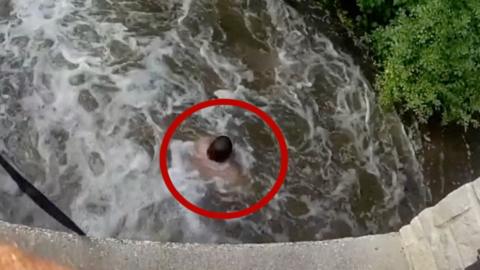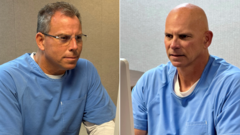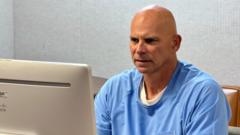After months of delays, a pivotal resentencing hearing for Erik and Lyle Menendez is commencing today, aiming to determine if the brothers, imprisoned for murdering their affluent parents in Beverly Hills in 1989, can secure a lesser sentence after over thirty years in prison. This hearing, restricted from being televised, will include two days of arguments and testimonies from multiple witnesses, including family members and others associated with the original case, as the judge weighs whether their sentence should be altered.
The prosecution holds firm on its stance that the brothers methodically planned the killings to claim their parents’ wealth, arguing that their lack of accountability and remorse should preclude their release. Conversely, the Menendez brothers contend that they acted in self-defense following years of severe abuse from their father, setting up a complex legal and emotional battle over notions of victimhood and culpability.
During the hearing, defense attorney Mark Geragos signaled an intent to call family members, correctional staff, and behavioral experts to the stand, while the district attorney’s office remains tight-lipped about its witness list. This hearing is not a retrial; rather, it focuses on the brothers' behavior and rehabilitation during incarceration—notably their claims of enduring severe trauma.
The case garnered widespread attention following its live broadcast during the 1990s and has since inspired a wealth of media, from documentaries to dramatic retellings. It remains a contentious issue in American public debate, divided between those who view the brothers as victims of circumstance and those who assert that their actions were egregiously calculated.
Interestingly, the most recent developments have been impacted by shifting political dynamics, as former Los Angeles District Attorney George Gascón showed support for resentencing, while current DA Nathan Hochman vocalizes a firm opposition, citing a lack of demonstrated accountability from the Menendez brothers. As the hearing unfolds, public attention remains fixated on the complex interplay of justice, accountability, and the lasting effects of childhood trauma.




















